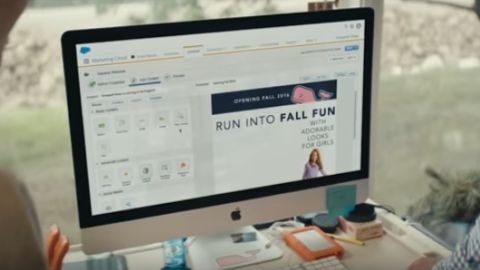California-inspired teen fashion chain PacSun has embarked on a multi-year plan to deploy unified commerce, starting with the implementation of an enterprise Order Management System (OMS) within the next 12 months.
“The OMS implementation will provide the foundation for the various use cases we want to expand to enhance the omnichannel shopping experience for our customers,” said Alan Flaesgarten, VP of IT for PacSun, in an interview with Retail TouchPoints. “The big win for PacSun is to sell our inventory in any channel, regardless of where the customer engages with us.”
PacSun joins a large group of retailers that are moving to deploy unified commerce within the next three years, according to a recent Boston Retail Partners survey.
To create the blueprint for unified commerce even before the first step was taken, PacSun employed retail consulting firm Columbus Consulting. “Unified commerce will have a profound impact on both systems and business users/processes,” said Columbus Consulting Partner Dave Brumback in an interview with Retail TouchPoints. The road-mapping process, which included top leadership, senior management and key business users at PacSun, “created alignment throughout the organization on the need, timing, and possible spend for an enterprise OMS and supporting initiatives,” he added.
The roadmap also addresses “supporting elements such as integration infrastructure improvements and upgrading current planning and allocation systems to support and recognize demand,” Brumback said.
OMS: First Step Toward Seamless Customer Experience
With the roadmap phase complete, Columbus Consulting is working with PacSun to select the products and solutions that the 422-store omnichannel retailer will deploy. The enterprise OMS will be “instrumental to our success as we work aggressively to meet the changing needs of our customers,” Flaesgarten said. “We are now able to begin our journey to enable a seamless customer experience across all retail channels.”
Flaesgarten added that customers might be experiencing the benefits of unified commerce as early as holiday 2018, depending on the vendor selected for the OMS implementation.
As a brand that sells primarily to Gen Z, PacSun prioritized mobile capabilities in its plan.
“Mobile is a key part of the overall solution,” Flaesgarten said. “We are improving in-store WiFi to leverage our existing applications and expand the use of mobile applications to improve the customer experience. With the use case of buy online/pick up in-store, for example, a quick mobile checkout will be essential.”
PacSun also will leverage the improved in-store wireless “to test various mobile solutions that improve checkout and fitting room experiences,” he added.
Restructuring For A New Era
The PacSun investment in unified commerce is a sign that the chain has a long-term vision and commitment to omnichannel retailing, despite its history of struggle in a changing industry.
Founded as Pacific Sunwear of California, PacSun began in 1980 with a single surf store in Newport Beach, Calif. The chain rapidly expanded during the 1980s, venturing beyond California with stores primarily in mall locations. After going public in 1993, the chain broadened its assortment and established itself as a retailer of a range of fashionable casual apparel for young men, eventually adding a comparable line of women’s clothing and accessories.
By 2016, Pacific Sunwear was operating 583 stores in 50 states and Puerto Rico, but like many mall-based specialty chains, the retailer was suffering from years of diminished traffic, e-Commerce cannibalization and expensive leases. The company filed for Chapter 11 bankruptcy protection and went through a five-month reorganization in 2016. In September 2016, PacSun emerged from bankruptcy when it was acquired by its senior lender, Golden Gate Capital, in a debt-for-equity restructuring. Now a private company, PacSun has slimmed down to 422 stores — becoming a success story in relative terms when so many other mall-based specialty chains have shut down entirely.
“I’ve been incredibly impressed at the vision they have for their retail business and the aggressive steps they’re taking to rapidly achieve those goals,” said Rick Amari, founder of Columbus Consulting in a statement. “With this attitude, they’re sure to see success as they make their vision a reality.”












